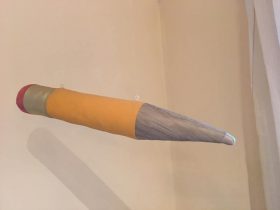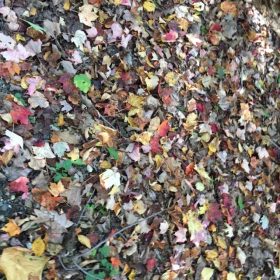I was at a dinner last week in New York …




I was trembling. I’d never had a book published and was shopping the proposal for "Feeding the Hungry Heart" around. Peg had a stuffed pencil hanging above her desk.
Although I said I had a whole book, I only had a book proposal. Or maybe I said I could write the whole book in a few months, I can’t remember now. All I know is that I was excited and terrified and had to keep pinching myself that I was actually sitting in the office of a editor in a New York publishing house. A year before that, having a book published was a dream that I wasn’t sure I could ever realize.

these past three days. There’s just nothing like sitting in a room with a group of people who want to dive into what’s keeping them from living their own version of a messy magnificent life. From owning their bodies, disengaging from the crazy aunt in the attic, being unbelievably kind to themselves. I am always wowed and awed at the humor and resilience and the utter devotion that comes through.The passion of the life force, the desire to take their lives back from food or whatever keeps them constrained.
A moment from the workshop: We were working with disengaging from that crazy aunt, and I asked people to write down 10 criticisms they’d made of themselves since they walked in the door. (A favorite exercise of mine. It’s so telling, so astonishing to see the way we talk to ourselves). Then I asked someone to read her criticisms aloud in exactly the voice in which she talks to herself. (Try this sometime. That voice drips with disgust, condemnation, shame). What’s staggering about talking to ourselves this way is that we would stop anyone from talking to our children or our best friends like this, but we tolerate it 24/7 from ourselves.
So, a brave woman stood up and began her list.


“Feeding the Hungry Heart,” no one was writing about issues around women and food, including breaking out of the cycle of shame, deprivation and self-torture. The prevalent wisdom at the time was focused on dieting. I suggested another way, which struck many as completely radical.
With “Women Food and God,” I challenged the common approach of relegating women’s issues around food, body and weight to will power and how much sugar you eat or don't eat. I broadened and deepened these constructs by saying: “How you eat is how you live.” If you want a reflection of the beliefs that drive you in your day-to-day life -- about relationships, your work, your children, about every single thing in your life -- all you have to do is take a look at the food on your plate.


Women are beginning to speak up and the power structure is beginning to crack. I’m thinking of this as I read the latest news of the latest men who harassed women because they could. Because they had the power. The list keeps growing. Politicians, priests, teachers, presidents, movie moguls, rock stars, spiritual teachers. And women are speaking up.
It may not be so obvious now because the power structure is still very much in place, but it’s an ancient edifice and it’s crumbling, brick by brick, wall by wall. Woman by woman.
Now is the time to stand in our own two shoes. Now is the time for women to come forward and to speak up — not for what we are against but what we are for. Meeting hatred or misogyny with more hatred and fury is more of the same. It’s meeting war with more war. And although I understand that fury is part of the package here — and totally understandable — it won’t lead to change. We’ve already tried that. It hasn’t worked.
Media error: Format(s) not supported or source(s) not found
Download File: https://6a3ea1b52632b4ba5769-e74d0921b9d54a102fe371691c69d367.r7.cf2.rackcdn.com/video/Testimonial%20Clips/testimonials-clip1-v5d_2000Kbps_720p.mp4?_=1